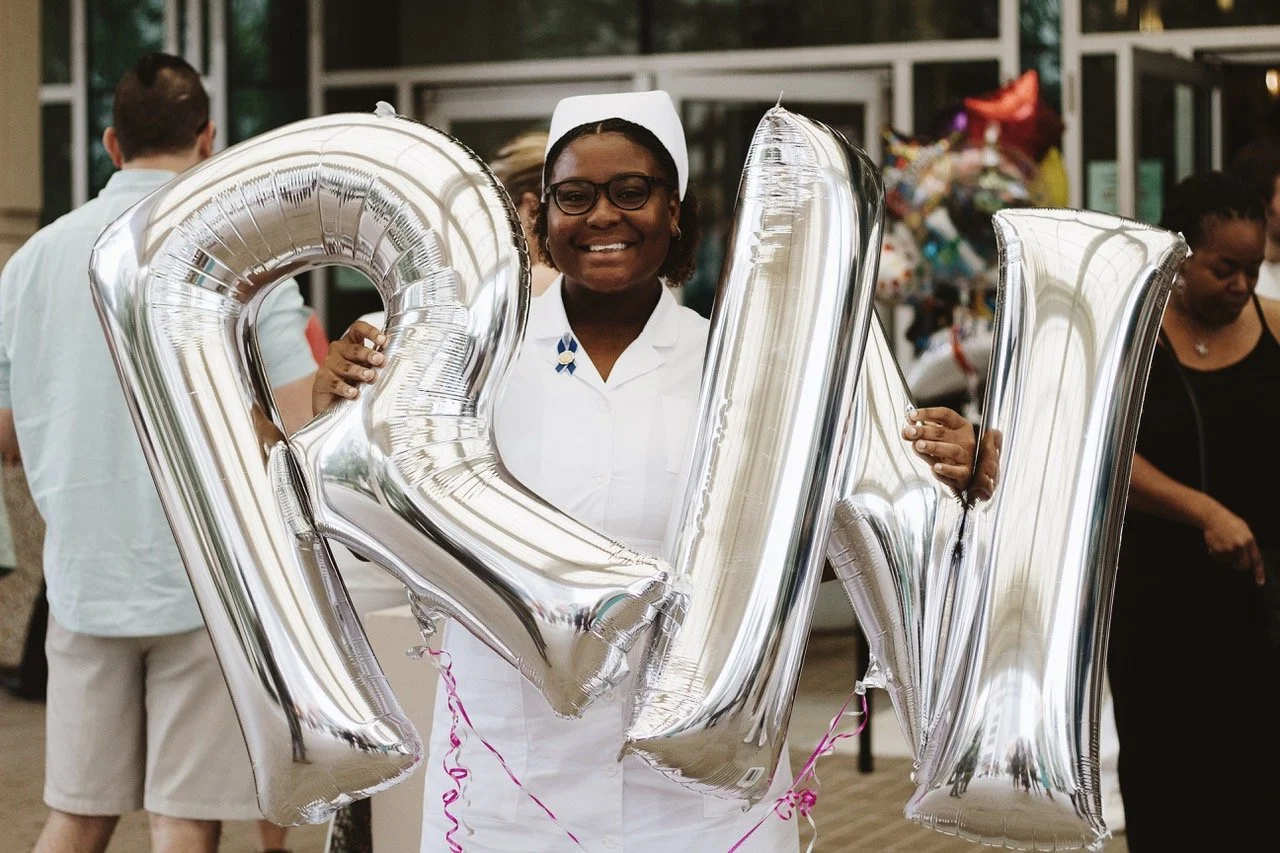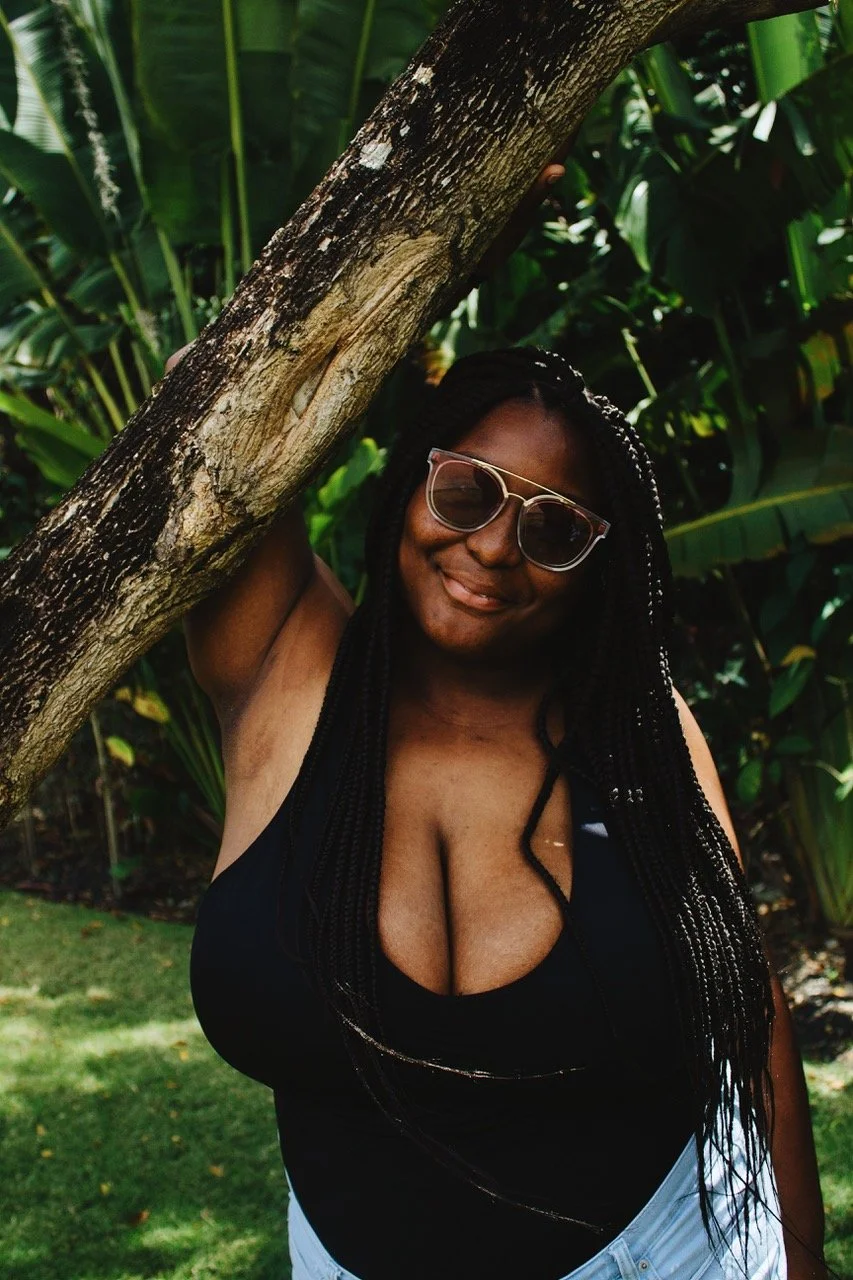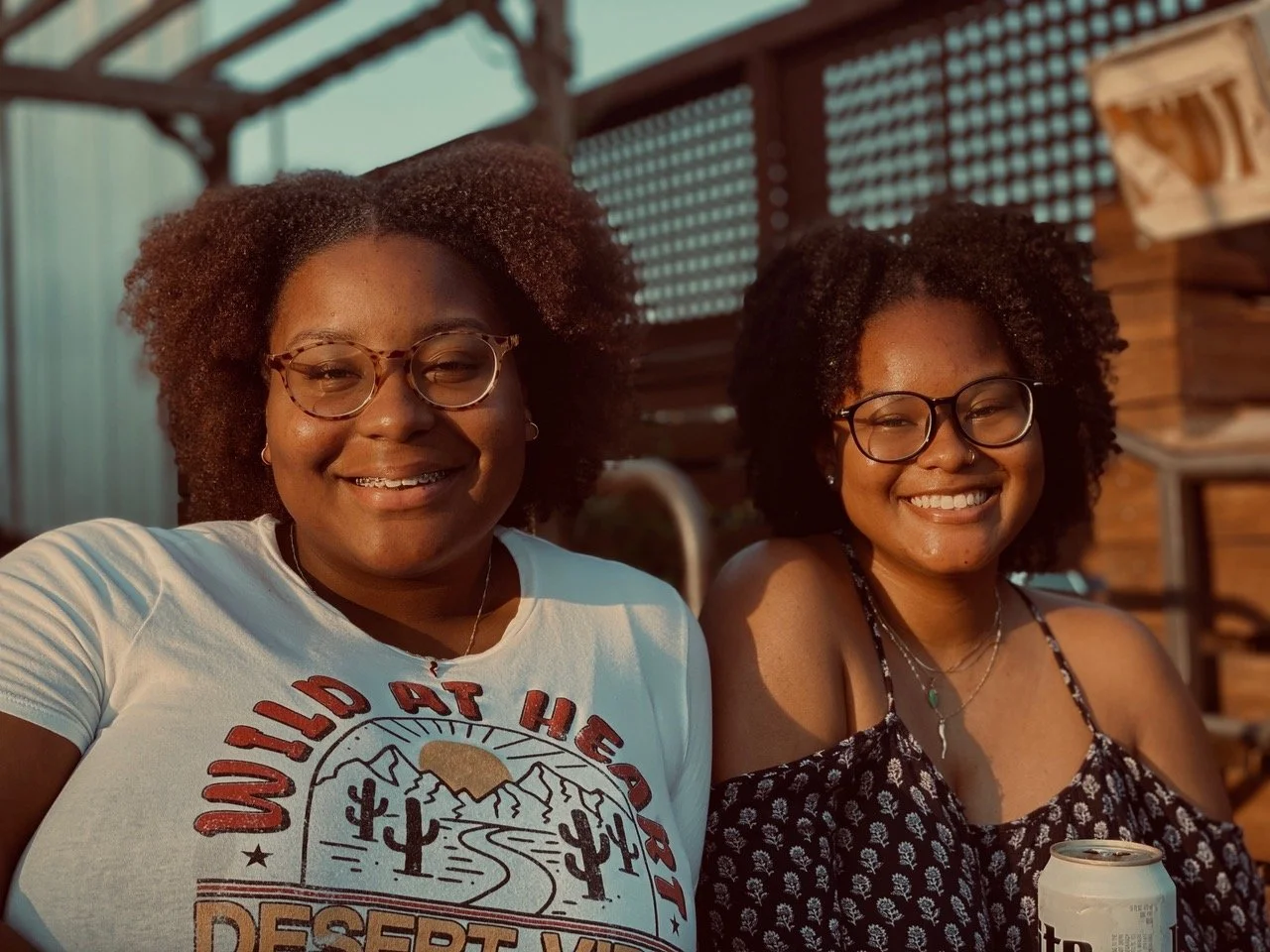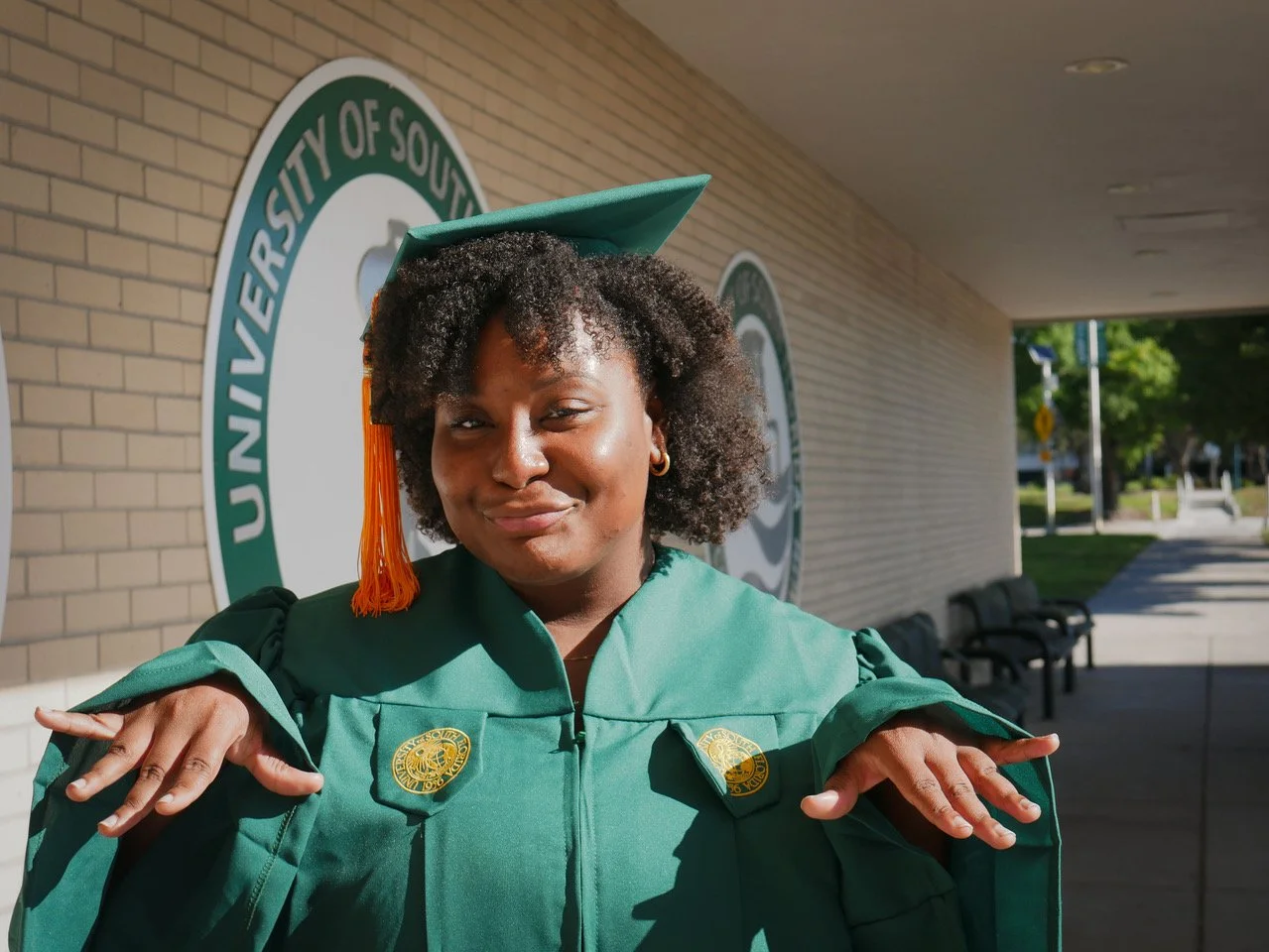Alysha Nicole Johnson | Pediatric Registered Nurse, Levine Children’s Hospital
As a Pediatric CVICU nurse, Alysha is responsible for the day-to-day care of critically ill patients—particularly kiddos—that suffer from congenital heart disease. With compete and total commitment to the care of others despite the many changes and hardships COVID has brought to her profession, Alysha spends each day perfecting her craft as a nurse, debunking the ‘healthcare heroes’ mentality, advocating for herself and others, practicing empathy, and staying true to her core values of consistency, quality, and boundaries.
The Basics:
Hometown: Jacksonville, Florida
Current city: Charlotte, NC
Alma mater: Florida State College at Jacksonville; University of South Florida
Degree: B.S., Nursing
Very first job: Preschool Teacher’s Assistant, Jewish Community Alliance
Hustle: Pediatric CVICU (Cardiovascular Intensive Care Unit) Nurse, Levine Children’s Hospital
The Interests:
Babe you admire and why?
My mama. She’s such a solid woman, and I can depend on her for anything. She’s sacrificed so much for my siblings and I to have a stable life. I wouldn't be the person I am without her. She’s also my brunch partner and twin flame, so there’s that.
What’s your favorite way to start a work day?
I literally start every day either on TikTok or continuing to read whatever book I fell asleep on the night before. Then I hop out of bed with 10 minutes to spare, and rush out of the door because I’ve lost track of time.
If you could travel anywhere in the world, where would you go + why?
Barcelona, Spain. Besides the obvious reason—hello, Cheetah Girls 2— it just looks like such a beautiful place full of culture, and food, and art, and history, all things that make me happy.
Any new hobbies or interests?
I’m trying to get back into cooking and baking, and really perfecting that craft. I have a very (VERY) minute food instagram account that I always forget to post on, but food and food photography are definitely the hobbies I’m interested in right now.
Describe yourself using album titles.
Come to My Garden - Minnie Ripperton. Don’t Let Me Be Misunderstood - Nina Simone. Control - Janet Jackson. Soul Food - Goodie Mob
The Hustle:
Tell us about your hustle.
As a Pediatric CVICU nurse, I’m responsible for the day-to-day care of critically ill patients that suffer from congenital heart disease. Sometimes I’m responsible for retrieving a patient from the OR and working with the entire ICU team in stabilizing the patient immediately after surgery. I’m personally responsible for monitoring vital signs and lab values, ensuring the patient isn’t internally bleeding or having major fluid shifts, and keeping them alive and stable in the first few hours after surgery. Other days I’ll have a patient preparing to go to surgery, or just a really sick kid, and my job is to make sure they’re stable and comfortable, working with other hospital departments in helping the patient meet developmental milestones, and providing support for the patient and their families.
What/who inspired you to pursue a career in Nursing? Have you always been passionate about caretaking, and where do you think that stems from?
My mom. When we were very young, we weren’t very well off, so my mom went back to nursing school to ensure she could take care of us, and make sure we had an opportunity for a future. She would always come home with these cool stories, and I literally had no idea what she was talking about, but I just knew that I loved how she loved her job. My brother also had really severe asthma when we were young, and I would see him in and out of the emergency room and doctor’s office, as well as seeing my parents help him with his breathing treatments when they were scheduled. I can remember setting my little alarm on my clock and making sure I was awake to help my brother with his breathing treatments. That drive to take care of him and others eventually turned into an interest in a career in the medical field, so I could take care of myself by taking care of others.
What’s your favorite thing about being a Pediatric Nurse? What made you choose this route?
The kids, plain and simple. They are so resilient, and I think it’s amazing. I’ve seen children bounce back from insurmountable circumstances and turn around and want to play, interact, and be happy, even when their situation isn’t optimal. Being a pediatric nurse is always a reminder of finding the light in the dark. I originally worked with adults for about a year, and soon after, realized that I missed working with children. My first job was a preschool teacher’s assistant at the JCA, and I quit that job once I started at Baptist. Working with strictly adults all day long was okay because I was helping my patients during a hard time in their life, but I always knew that I wouldn’t truly be happy until I could help the kids.
What objectives do you strive for in your daily tasks? Why are these important to you?
Each day I strive for consistency, quality, and boundaries. Consistency and quality in nursing are always tied to safe patient outcomes, so they’re engrained in every single task I complete while working. Boundaries are so important to me because in healthcare, professionals can literally carry the weight of their patients’ problems, and feel a personal responsibility for each outcome. I’ve learned that setting boundaries with management, doctors, PAs/NPs, nurses, patients, and their families is essential for success within my job.
How do you provide comfort to families going through difficult situations? Similarly, how do you keep your team and co-workers motivated through tough days?
When I have a family going through a death or a difficult situation, I really try to relay that I’m there to assist in their time of transition. In those situations, I always like to keep in mind that I cannot directly empathize with their pain; I’ve never lost a child, or felt an immediate crushing loss of a close family member, or had a child in the hospital. So, in those situations, I offer support and a listening ear Motivation is fleeting in healthcare, I think. When my team and I have rough times, we always keep in mind that there are more patients, more opportunities, more learning to be done. Sure, when we have a loss, emotions are heavy, but it’s particularly important to me to remember that my feelings are valid-- when we’re emotionally tired, we take time and rest, when we feel like we can keep going, we keep going. But I think what keeps us driven is the knowledge that there is always another chance to help another patient/family.
How have your past professional and academic experiences and lessons prepared you for the work you do today? How have they not prepared you?
Nursing school and being a preschool teacher both prepared me for thinking quickly on my feet, being prepared for anything, and always needing to learn more. Nursing school literally does not prepare you to actually be a nurse, but it does give you the skills to research evidence-based medicine and critically think with a small amount of information to make a clinical decision. Preschool taught me how to work with people who don’t always agree with everything I have to say. Conversely, I really don’t think those experiences could have fully prepared me for everything nursing entails. From standing up for myself to fiercely advocating for complete strangers, I don’t think my past experiences could have been any better.
What has COVID changed about your daily work?
When COVID initially started, it didn’t really affect children; and then, I came in one day a bit early to assist with an emergency ECMO (extracorporeal membrane oxygenation/ life support) case on a kiddo who was COVID positive a few weeks prior and had made a full recovery. Our entire team was confused as to why this child was in complete multi-system organ failure with no real indication for it. Turns out, a rare consequence of COVID in children is a sort of post-recovery multi-organ system failure. I’ll never forget the cries of her family after we let them know there was nothing else we could do, and their child was gone. In the ICU, it is now common to have kids come in with active COVID, as well as the same MIS-C (multiple system inflammatory syndrome in children) and have to be emergently intubated and/or placed on EMCO. When encountering these situations, I always say a little prayer for the patient, their family, and the ICU team working on their care, and hope for the best. I think that’s all any of us can do. COVID has made me a more careful nurse, and a more empathetic nurse as well.
What is one thing people should know before becoming a nurse?
Nursing is not the cute scrubs, and tiny stethoscopes, and all the “superhero” stuff you see on instagram or Grey’s Anatomy. Nursing is HARD. It requires everything you have to give. Sometimes I feel like the nurse is responsible for every aspect of a patient’s care, even when you’re working with an entire care team. Nurses are the last line of defense for a patient. That requires skill, compassion, and critical thinking. It’s a serious job. Please don’t become a nurse for money or notoriety, or because they only work three days a week. Become a nurse because you want to be there, and you genuinely care about the complete strangers you’ll see each time you go on shift.
How do you keep yourself organized and motivated in high-pressure moments at work?
I’ve found that focusing on one task at a time during an emergency situation is best during those high-pressure moments. As a baby nurse, I remember being flustered with the sheer amount of work that can arise with an emergency. As I grow as a nurse, I’ve realized more and more that having a level head and taking it one step at a time in a high pressure moment is better than freaking out and stressing about a million things out of my control.
How has being a woman impacted your professional experiences? What can we collectively do to support and empower women in your industry today?
Nursing is a female-dominated career, but I’ve had my fair share of having to stand up for myself, especially in situations with coworkers (usually older and male) who don’t think I have the knowledge or capabilities to do my job due to my sex and age. I think it’s just really important for women in healthcare to know that their clinical decisions and opinions do not deserve to be overlooked and second-guessed simply on the basis of sex. Providing a platform where women in healthcare can see other women in healthcare flourishing and making the hard decisions, and shutting down unwarranted questioning or criticism, helps so much!
Specifically, how has being a woman of color impacted your professional experience? What can we do to create more supportive and inclusive work environments inside and outside of your industry?
I’ve definitely been subjected to racism and prejudice as a nurse. I can remember when serving adults, having older patients repeatedly call me the N-word in anger or confusion. I can remember having patients question my educational background, asking what my grade point average was or how many times I had to sit for my board exam before I could even start a head-to-toe assessment. Since switching over to pediatrics, I’ve noticed that a few parents seemed shocked or uncomfortable to see me help take care of their child, having worked on units with only a handful of POCs in nursing positions. I stopped letting interactions like those bother me a long time ago, but I definitely think that it is important to note that experiences like mine in healthcare shed light on the fact that inclusivity extends beyond work environments and goes back into the community. I think the most important thing we can do to create more inclusive environments in and beyond nursing, is to encourage others to pursue their dreams no matter what. I think that encouragement will help more women of color branch out to do the things that make them happy, no matter the field’s historic demographic, and will eventually create such a diverse environment that conscious inclusivity will no longer be an active thought.
What’s one thing you’re proud to have accomplished in your career so far?
I’m proud of the person I’ve become while curating my career. If anyone would have told me three years ago as I was starting out, that I would be brave enough to work in a nationally-ranked pediatric CVICU, I would have laughed. I’m so proud that I’ve become less afraid to do the hard things that matter most to me.
What’s one of the biggest obstacles you’ve faced in your work? How’d you overcome it?
Finding my voice as a nurse was definitely the biggest obstacle I’ve faced. Starting out in nursing, it was a constant battle getting the physicians and experienced nurses to see me as a colleague, and not just an ill-informed orientee. I can remember thinking, “okay y’all think I don’t know anything—so I’ll know everything.” I became the most knowledgeable nurse I could be. If the doctor or provider had a question about patient status, I knew it off the top of my head. Miscellaneous lab values? Got it. Medication contraindication? Understood. Patient care plan? All good. I made sure I was never caught off guard, proving to all of my colleagues that I am a valuable member of the team with something to contribute.
With such a high functioning career, how do you keep yourself from getting overwhelmed or burnt out? Are there any rituals or routines you practice to get through the work day?
Recently, I’ve been continuously humming a song I heard on TikTok very softly if I’m overwhelmed at work or need something else to think about to recenter. The lyrics go, “just relax my friend, you’re overthinking/ and even if there is a problem, there’s a solution/ remember to breathe, put your mind at ease/ soon this feeling’s going to pass, and you will find relief.” I find that constantly reminding myself that each obstacle can be resolved, and will pass, really helps combat feelings of burnout. I also love to treat myself! Everyday is ‘treat yourself day’ to me! I just bought a new rug for my apartment as well as a Telfar bag. Instant rush of dopamine.
The world developed a new appreciation for healthcare professionals during this past year. What were some moments of appreciation that you’ve experienced as a nurse during the pandemic?
In addition to my job in the hospital, I also assisted with the administration of the Johnson & Johnson vaccine to mostly communities of color. Receiving the vaccine was a bit of a taboo among people of color, so being able to educate my community on the risks and benefits of getting the vaccine, as well as receiving handshakes from patients and hearing sighs of relief from their family members, was such a treat. I was fortunate to be able to help my community in such an unsafe time. I also got to administer my sister and her boyfriend’s vaccines, so that was pretty cool, too!
Who are some women in your field that you look to for inspiration?
Dr. Carolyn Bannister. Dr. Bannister started out as a nurse, and worked her way through CRNA (certified registered nurse anesthetist) school, and eventually went to medical school to become an anesthesiologist. Dr. Bannister is now the Chair of Anesthesia at Nemours and one of my greatest inspirations. I remember asking one day, what drove her to continue to go back to school to complete her medical degree. She told me that being a doctor was the only thing she wanted to do growing up, and she was not going to stop until she achieved that goal. Now, as the most senior anesthesiologist in the operating room at Wolfson’s, Dr. Bannister continues to inspire me to treat people with kindness and to never give up on my dreams. Honorable mentions to my mother, the woman who inspired me to become a nurse; Dr. Adebisi Ajala, Dr. Ida Mejias-Rodriguez, and Dr. Wallena Gould! These women are all magical in their own rites, and inspire me each day to do ALL of the things I dream of.
Are there any misconceptions about your profession that you’d like to clear up?
The whole “healthcare heroes” thing that started with COVID is so misconstrued. Most healthcare professionals don’t go into this profession to be called a hero. Nine times out of ten, healthcare workers want fair wages, safe ratios, and time off. Many of the healthcare workers who have suffered firsthand at this pandemic would much rather have hazard pay and better ratios from hospital administration instead of being called a “hero.”
Career and/or life advice for other babes?
It’s okay to quit. If you’re stuck in a situation that doesn’t serve you, or bring you joy, quit. Quitting for peace of mind or safety should be celebrated. For the baby nurses: it’s okay to go to another unit after six months or a year! Try something new! Nursing is so broad, it’s okay to leave your current situation to find a unit that better fits you. For other babes: life is way too short for any of us to be doing anything that doesn't make us happy, find something that doesn’t make you dread getting up everyday.
In partnership with: Knix
An intimate apparel brand on a mission to inspire all people to live unapologetically free, Knix makes amazing wireless bras, period-proof underwear, sports bras + loungewear designed with your comfort in mind. Click here to shop Knix and enjoy free shipping on all orders over $75!
*This is an affiliate partnership. That means when you shop using the links we provide, we earn a small commission. Interested in advertising or partnering with us? Click here.
Join our community:
Instagram / Facebook / Shop / Newsletter / Nominate a Babe












